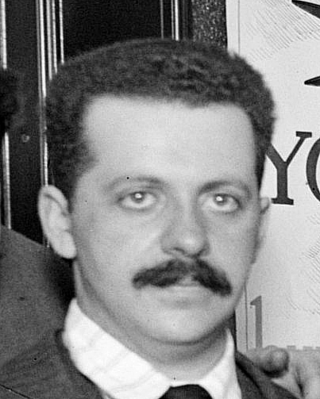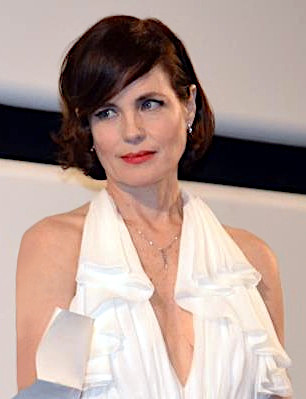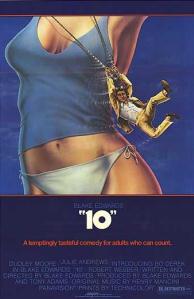Psychoanalysis is a set of theories and therapeutic techniques that deal in part with the unconscious mind, and which together form a method of treatment for mental disorders. The discipline was established in the early 1890s by Sigmund Freud, whose work stemmed partly from the clinical work of Josef Breuer and others. Freud developed and refined the theory and practice of psychoanalysis until his death in 1939. In an encyclopedia article, he identified the cornerstones of psychoanalysis as "the assumption that there are unconscious mental processes, the recognition of the theory of repression and resistance, the appreciation of the importance of sexuality and of the Oedipus complex." Freud's colleagues Alfred Adler and Carl Gustav Jung developed offshoots of psychoanalysis which they called individual psychology (Adler) and Analytical Psychology (Jung), although Freud himself wrote a number of criticisms of them and emphatically denied that they were forms of psychoanalysis. Psychoanalysis was later developed in different directions by neo-Freudian thinkers, such as Erich Fromm, Karen Horney, and Harry Stack Sullivan.

Peter Sellers was an English actor and comedian. He first came to prominence performing in the BBC Radio comedy series The Goon Show, featured on a number of hit comic songs and became known to a worldwide audience through his many film roles, among them Chief Inspector Clouseau in The Pink Panther series.

Sigmund Freud was an Austrian neurologist and the founder of psychoanalysis, a clinical method for evaluating and treating pathologies seen as originating from conflicts in the psyche, through dialogue between patient and psychoanalyst, and the distinctive theory of mind and human agency derived from it.

Carl Gustav Jung was a Swiss psychiatrist and psychoanalyst who founded analytical psychology.
Transactional analysis is a psychoanalytic theory and method of therapy wherein social interactions are analyzed to determine the ego state of the communicator as a basis for understanding behavior. In transactional analysis, the communicator is taught to alter the ego state as a way to solve emotional problems. The method deviates from Freudian psychoanalysis which focuses on increasing awareness of the contents of subconsciously held ideas. Eric Berne developed the concept and paradigm of transactional analysis in the late 1950s.

Golders Green Crematorium and Mausoleum was the first crematorium to be opened in London, and one of the oldest crematoria in Britain. The land for the crematorium was purchased in 1900, costing £6,000, and the crematorium was opened in 1902 by Sir Henry Thompson.

Edward Louis Bernays was an American theorist, considered a pioneer in the field of public relations and propaganda, and referred to in his obituary as "the father of public relations". His best-known campaigns include a 1929 effort to promote female smoking by branding cigarettes as feminist "Torches of Freedom", and his work for the United Fruit Company in the 1950s, connected with the CIA-orchestrated overthrow of the democratically elected Guatemalan government in 1954. He worked for dozens of major American corporations including Procter & Gamble and General Electric, and for government agencies, politicians, and nonprofit organizations.
Narcissistic personality disorder (NPD) is a personality disorder characterized by a life-long pattern of:

Sadomasochism is the giving and receiving of pleasure from acts involving the receipt or infliction of pain or humiliation. Practitioners of sadomasochism may seek sexual pleasure from their acts. While the terms sadist and masochist refer respectively to one who enjoys giving and receiving pain, some practitioners of sadomasochism may switch between activity and passivity.

Nicholas Meyer is an American screenwriter, director and author known for his best-selling novel The Seven-Per-Cent Solution, and for directing the films Time After Time, two of the Star Trek feature films, the 1983 television film The Day After, and the 1999 HBO original film Vendetta.

Elizabeth Lee McGovern is an American actress. She has received many awards, including a Screen Actors Guild Award, three Golden Globe Award nominations, and one Academy Award nomination.

Analytical psychology is a term coined by Carl Jung, a Swiss psychiatrist, to describe research into his new "empirical science" of the psyche. It was designed to distinguish it from Freud's psychoanalytic theories as their seven-year collaboration on psychoanalysis was drawing to an end between 1912 and 1913. The evolution of his science is contained in his monumental opus, the Collected Works, written over sixty years of his lifetime.

S.O.B. is a 1981 American satirical black comedy film written and directed by Blake Edwards. It stars Julie Andrews, Richard Mulligan, Robert Preston, Larry Hagman, Robert Vaughn, Robert Webber, Loretta Swit, Shelley Winters, and William Holden in his final film role. The film was produced by Lorimar and was released by Paramount Pictures on July 1, 1981.

10 is a 1979 American romantic comedy film written, produced and directed by Blake Edwards and starring Dudley Moore, Julie Andrews, Robert Webber and Bo Derek. It was considered a trendsetting film at the time of its release and became one of the year's biggest box-office hits. The film follows a middle-aged man who becomes infatuated with a young woman whom he has never met, leading to a comic chase and an encounter in Mexico.

The Alienist is a crime novel by Caleb Carr first published in 1994 and is the first book in the Kreizler series. It takes place in New York City in 1896, and includes appearances by many famous figures of New York society in that era, including Theodore Roosevelt and J. P. Morgan. The sequel to the novel is The Angel of Darkness. The story follows Roosevelt, then New York City police commissioner, and Dr. Laszlo Kreizler, as their investigative team attempts to solve gruesome murders through new methods including fingerprinting and psychology. The first murder victim investigated is a 13-year-old immigrant who has had his eyes removed, his genitals removed and stuffed in his mouth, and other injuries. The investigators deal with various interest groups that wish to maintain the status quo regarding the poor immigrant population in New York City.
Jungian archetypes are a concept from psychology that refers to a universal, inherited idea, pattern of thought, or image that is present in the collective unconscious of all human beings. The psychic counterpart of instinct, archetypes are thought to be the basis of many of the common themes and symbols that appear in stories, myths, and dreams across different cultures and societies. Some examples of archetypes include those of the mother, the child, the trickster, and the flood, among others. The concept of archetypes and the collective unconscious was first proposed by Carl Jung, a Swiss psychiatrist and psychoanalyst.

Fred Melamed is an American actor, comedian, and writer. Renowned as a character actor, he came to prominence for his role as Sy Ableman in the Coen Brothers' A Serious Man (2009) and for his collaborations with Woody Allen, appearing in seven of Allen’s films including Hannah and Her Sisters (1986), Radio Days (1987), and Crimes and Misdemeanors (1989). Other notable credits include In a World... (2012), Hail, Caesar! (2016), and Shiva Baby (2020).

Anne-Lise Stern was a French psychoanalyst and Holocaust survivor.













